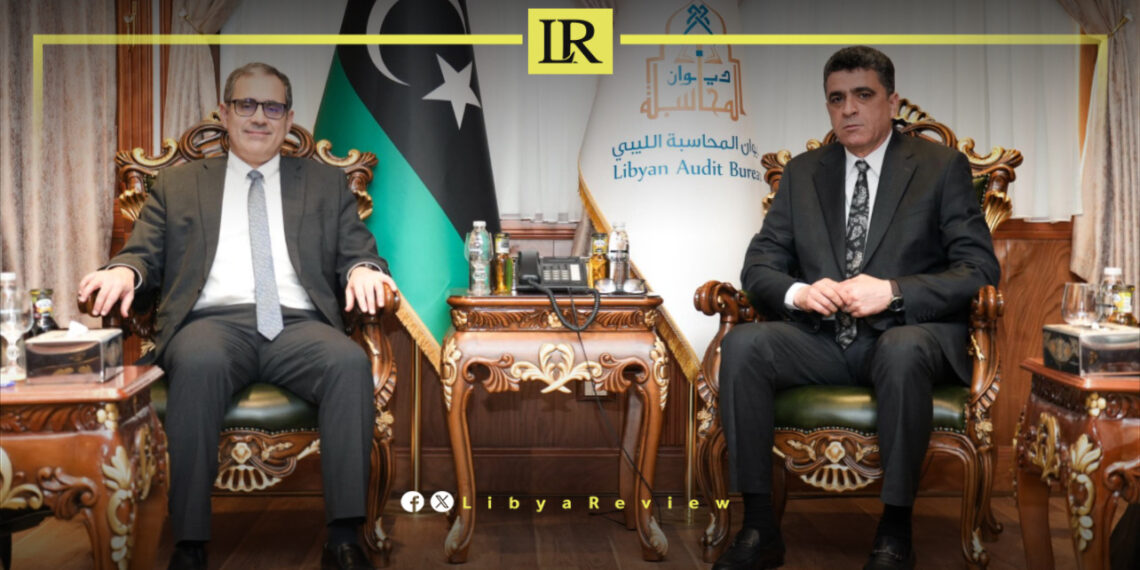The Head of Libya’s Audit Bureau, Khaled Shakshak, held a meeting today with Jeremy Berndt, the Chargé d’Affaires at the US Embassy in Libya, to discuss ongoing efforts to promote transparency and accountability in public institutions.
According to an official statement, the talks focused on the central role of the Audit Bureau in strengthening financial oversight through its regular monitoring activities. Both sides underscored the need to preserve the independence and neutrality of the Bureau to ensure the credibility of its audit reports.
During the meeting, Shakshak also discussed an invitation extended by the United States Government Accountability Office (GAO) for the Libyan Audit Bureau to participate in the International Audit Fellowship Program. The initiative aims to promote collaboration and knowledge exchange among global audit institutions, with the goal of enhancing institutional efficiency and improving oversight practices.
Both parties agreed on the importance of fostering cooperation between local and international audit bodies, aligning regulatory mechanisms with international best practices to advance public sector accountability.
This meeting reflects growing international support for Libya’s governance institutions as the country seeks to strengthen the rule of law and fight corruption.
Libya has been in chaos since a NATO-backed uprising toppled longtime leader Muammar Gaddafi in 2011. The county has for years been split between rival administrations.
Libya’s economy, heavily reliant on oil, has suffered due to the ongoing conflict. The instability has led to fluctuations in oil production and prices, impacting the global oil market and Libya’s economy.
The conflict has led to a significant humanitarian crisis in Libya, with thousands of people killed, and many more displaced. Migrants and refugees using Libya as a transit point to Europe have also faced dire conditions.
The planned elections for December 2021 were delayed due to disagreements over election laws and the eligibility of certain candidates. This delay has raised concerns about the feasibility of a peaceful political transition.
Despite the ceasefire, security remains a significant concern with sporadic fighting and the presence of mercenaries and foreign fighters. The unification of the military and the removal of foreign forces are crucial challenges.


